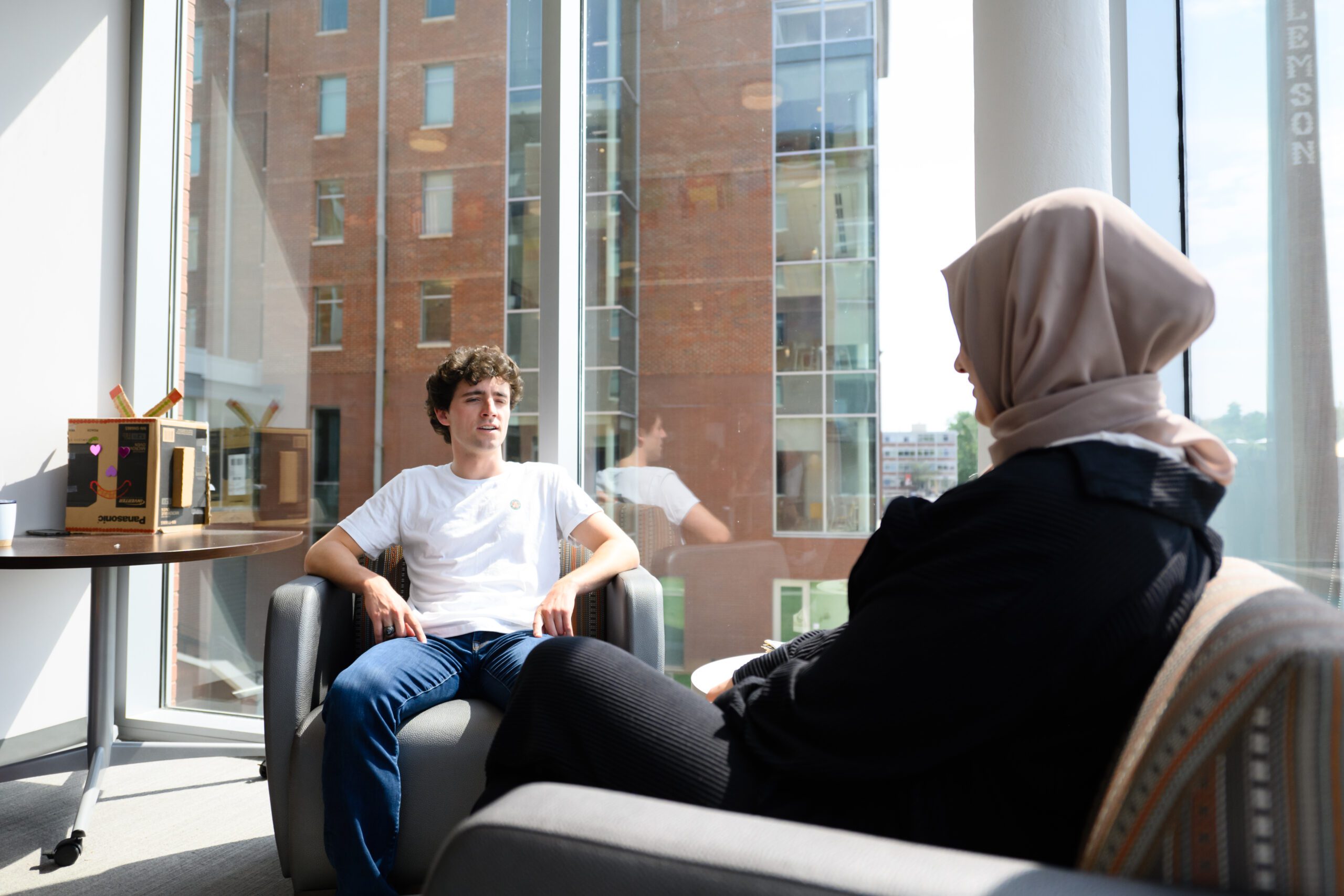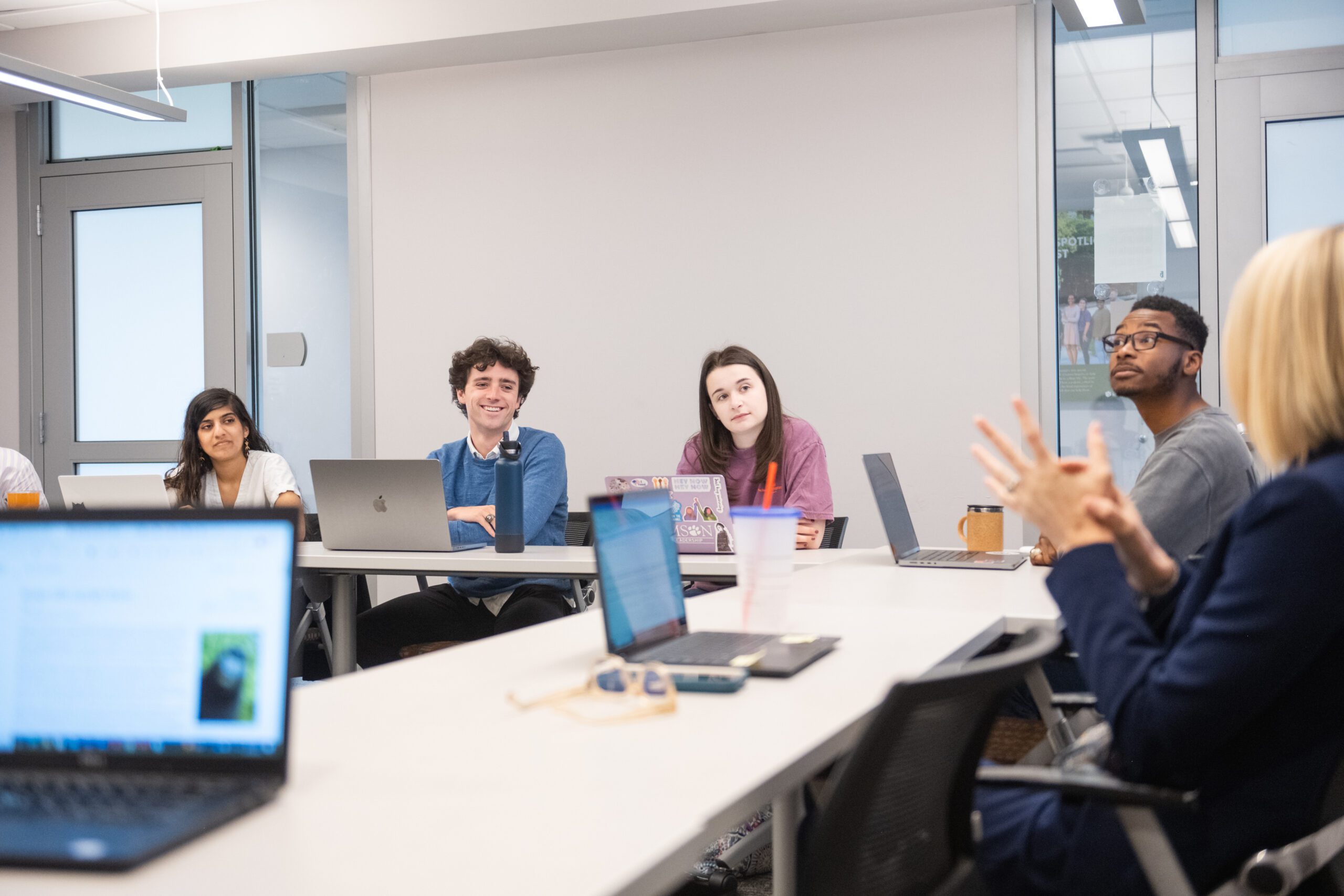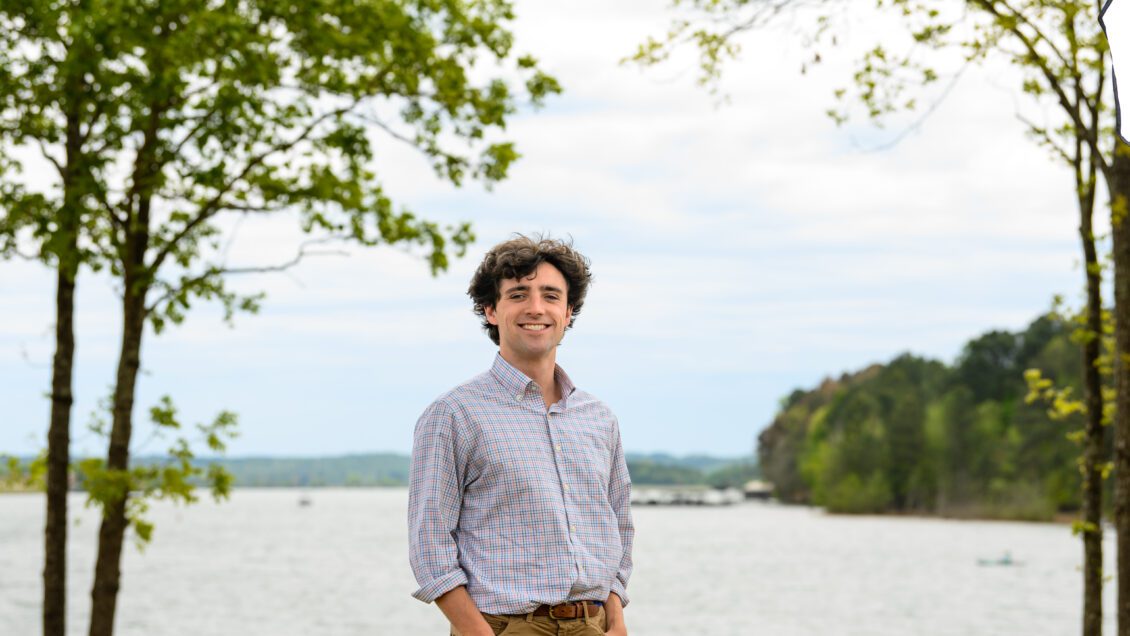A student who started teaching himself physics in middle school and writing scientific research papers in high school will make history at Clemson University on May 12 when he crosses the stage at Littlejohn Coliseum, accepts his diploma and shakes President Jim Clements’ hand.
Grant Wilkins will become Clemson’s first graduate to receive the Churchill Scholarship, an honor that pays for a year of study at the University of Cambridge, where he plans to pursue a Master of Philosophy in advanced computer science.
Grant, who is also a Goldwater Scholar and Astronaut Scholar, has published four research papers since joining Clemson, work that would be expected of a graduate student but is rare for an undergraduate. He also interned at Tesla, studied in South Africa and helped organize student events, including a Tigerama that gave him a chance to talk football with Georgia rapper B.o.B.
Family and friends said that as accomplished as Grant is, he isn’t the type to brag. He has a life outside of the classroom and lab that includes yoga, vegetarian cooking and playing in the snow.
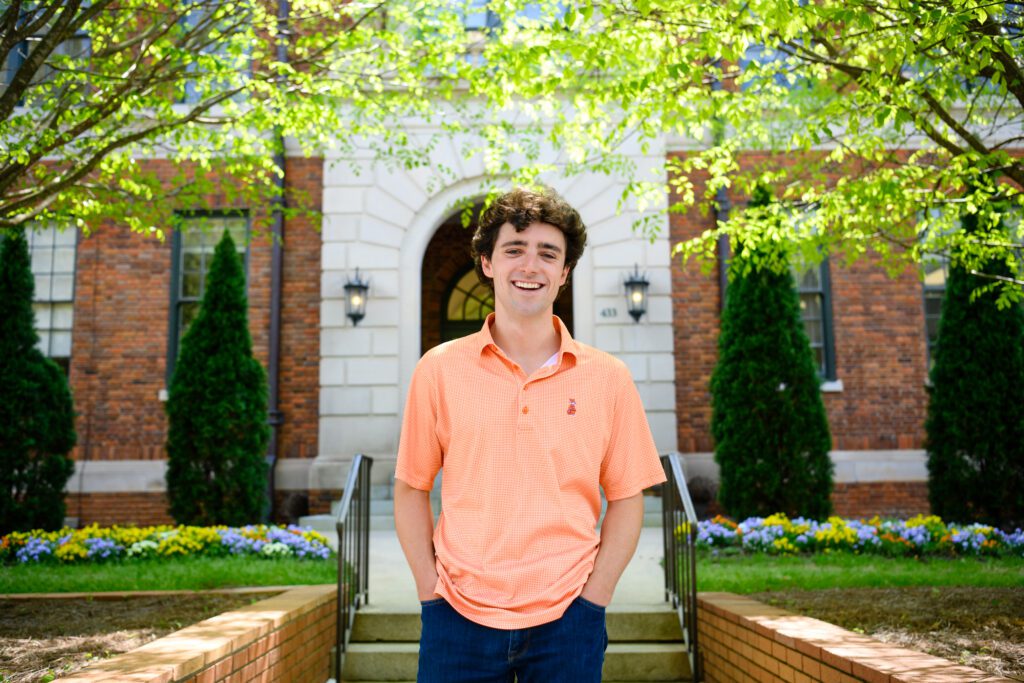
Former Clemson President Jim Barker said that he has worked with many students in his 45 years in the academy, and Grant is among the top five.
“Very few people could match the depth and breadth of what he has achieved,” Barker said. “The other thing I would mention is leadership. He is fully engaged with his colleagues, he has great skills in encouraging and listening to people and he finds a lot of joy in helping others.”
Family tradition
Grant, who is receiving his Bachelor of Science in computer engineering and mathematics, grew up in Kingsport, Tennessee, the second of three children. His mother, Elizabeth, is a Spanish teacher at Dobyns-Bennett High School, and his father, Mike, is an engineering manager at Cardinal Glass Industries.
Grant comes from a family that has been deeply entrenched in the Clemson Family for decades starting in 1963 when his grandfather, Jerry V. Reel accepted a faculty position as an instructor while completing his Ph.D. at Emory University.
Reel, now retired, went on to become a history professor, dean and vice provost of undergraduate studies who wrote a two-volume history of Clemson, “The High Seminary,” and whose many awards include the University’s highest honor, the Clemson Medallion.
Grant’s parents met at Clemson. Several of his relatives on both sides of the family, including both parents, three grandparents, four uncles, an aunt, two cousins and a great uncle, are Clemson graduates. Grant visited Clemson frequently while growing up to see relatives on his mother’s side of the family and to attend Tigers’ football games, his first at 6 weeks old.
In his earliest years, Grant was rambunctious and at 4 years old was diagnosed as far-sighted, his mother said.
“He had an interest in books and numbers, could talk to you about a lot of things and knew what was coming next in a story, but he really never looked at anything until he got those glasses, and that was life altering,” Elizabeth said.
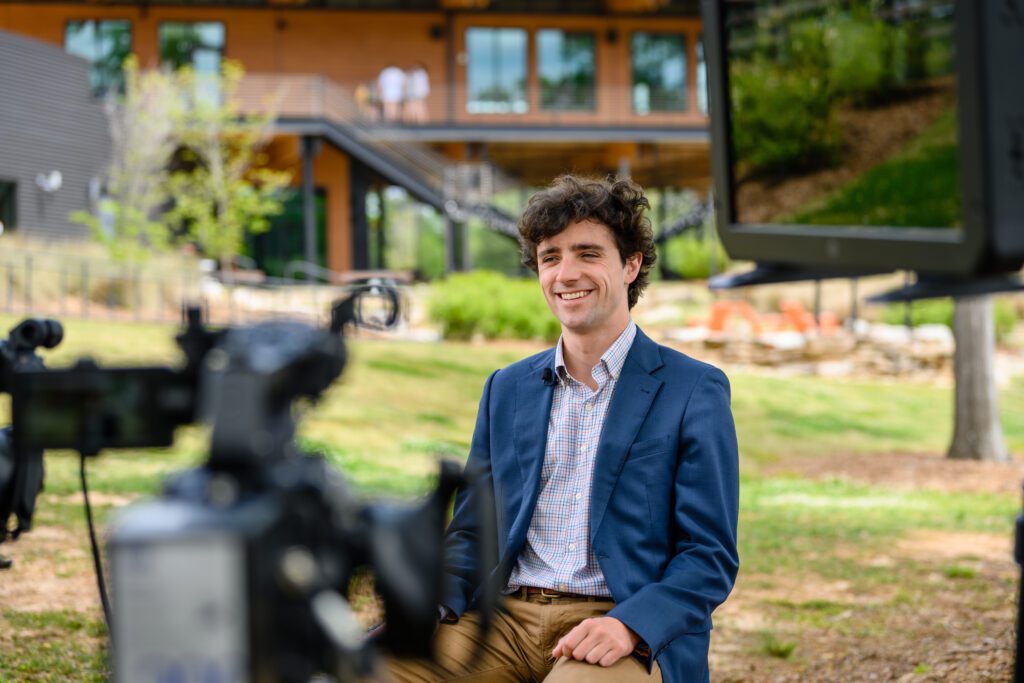
Grant said he has enjoyed math his whole life, and by sixth grade he learned that the subject was connected to science. He also started reading Wikipedia articles on wormholes and other physics-related topics.
“In eighth grade, I would have told you I was a guru in physics, but it was the Dunning-Kruger effect,” Grant said. “You don’t realize how much you don’t know until you learn a little bit more.”
And keep learning he did.
His father said that during high school, Grant would forgo weekend breaks in favor of coursework or research but that not too much should be made of his image as a bookworm.
“Grant had a very robust social agenda, considering he was very active in scouting and was deeply involved in student council,” Mike said. “He was involved in numerous school clubs and academic teams and had a very active friend group and social life. Looking back on it, I am amazed how he balanced it all then but even more amazed at what he is doing now in a much larger arena.”
Following a dream
Grant began to consider becoming a Tiger himself while a high school student, and he applied to Clemson’s Honors College. He said he was “over the moon” when he was invited for an interview.
“I had always wanted to go to Clemson partially because of family connections and partially because of my tour of the Holcombe Department of Electrical and Computer Engineering — everything was so impressive,” he said. “But getting the financial ability through the National Scholars Program was huge. It was one of the major turning points that changed my life.”
Grant continued volunteering for public service at Clemson. He belongs to several honor societies and has helped with the Student Alumni Council’s ring ceremony for the past four semesters. He also led a retreat team that introduces incoming National Scholars to campus every fall and helped plan student-focused fundraisers through the Blue Key Honor Society.
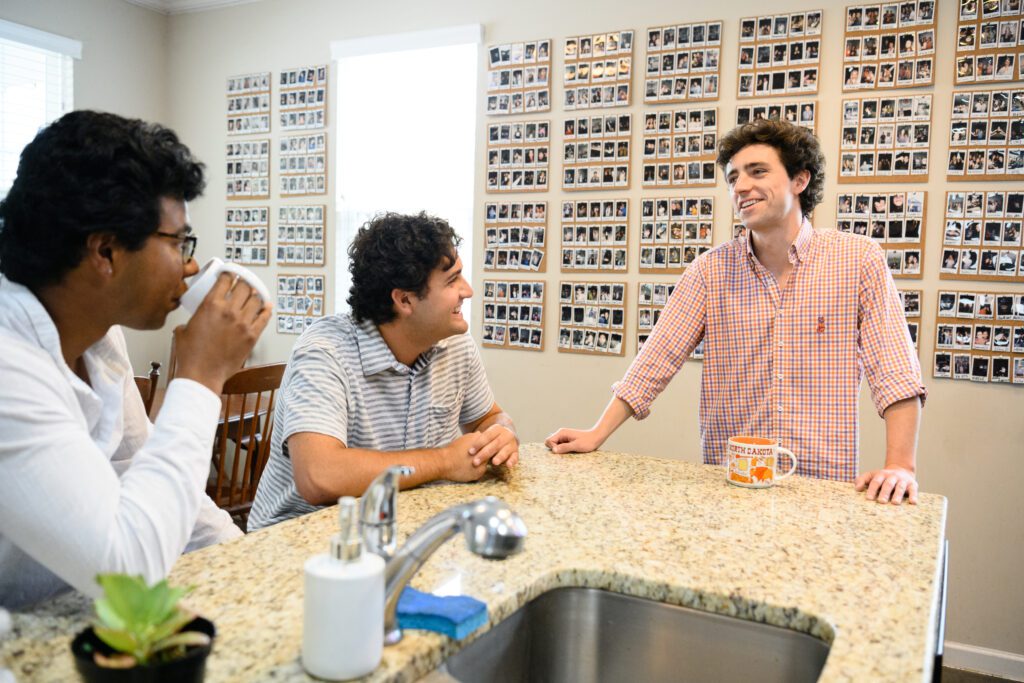
Since sophomore year, Grant has lived with the same two roommates, Brennan Dougherty and Matthew Koshy, in a house less than a mile from campus. They have made memories together, such as the time it snowed and they went sledding, cooked huge pots of pasta and sang karaoke with several other friends, Dougherty said.
Both of Grant’s roommates said he leaves his accomplishments understated.
“He doesn’t talk about it, so people are shocked when they hear about all the crazy stuff he does in school,” Dougherty said. “He does a good job balancing it for sure.”
Koshy said he first got to know Grant when the two of them worked for rival campaigns for student body president. They were both in the Honors College, and Dougherty brought them together, Koshy said.
“Grant is one of my best friends,” Koshy said. “I’m lucky to have lived with him for the past three years. I can’t imagine a better roommate or friend.”
Pursuing answers through research
While at Clemson, Grant has conducted research with Jon Calhoun, assistant professor of electrical and computer engineering. They have focused on lossy compression in high-performance computing for scientific applications.
Lossy compression is a technique that involves discarding the least important information to reduce the amount of data for storing and processing. Grant is interested in applying the technique to energy efficiency, which could help keep the power flowing during natural disasters or peak usage.
Calhoun said Grant showed up at his office during his first semester at Clemson and said he thought the assistant professor’s work was interesting. It was only the second time a student that young had approached Calhoun about his research, he said.
What followed is now well-known: research papers and a string of high honors that include some of science and engineering’s most competitive scholarships.
“Grant represents the benchmark of what students at Clemson can achieve,” Calhoun said. “Now and for probably a very long time, I’m going to use him as an example to inspire undergraduates: ‘This is what you can do if you put your mind to it. If you put in the work, these are things you can accomplish.'”
